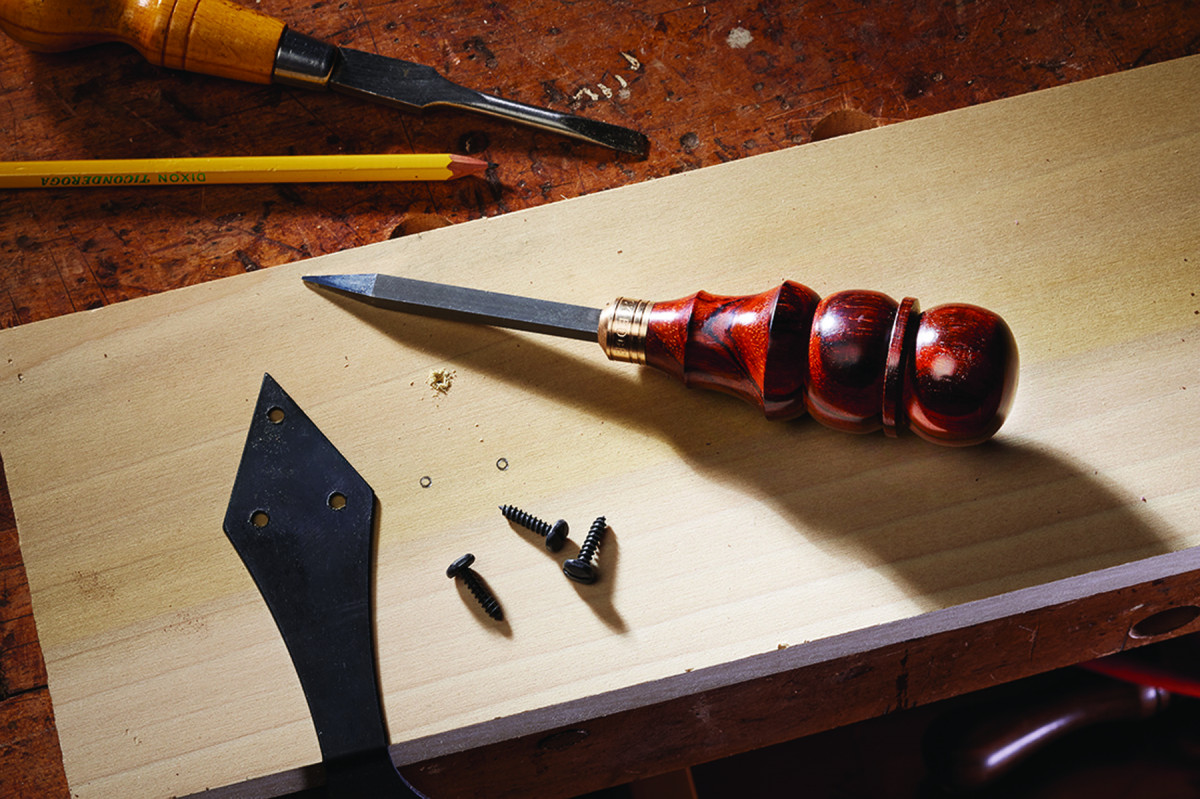We may receive a commission when you use our affiliate links. However, this does not impact our recommendations.

Tool: Carbide Birdcage Awl Shop Now
Manufacturer: Czeck Edge
MSRP: $74
The first thing you notice when you grasp a Czeck Edge Hand Tool birdcage awl is how well it fits in the hand. The cocobolo handle is beautifully turned with a shellac finish that is silky smooth. And the blade is balanced, polished, and sharp.
The great thing about going carbide for an awl is the longevity of the point. Many woodworkers use awls to bore starter holes for small screws (similar to how one would use a gimlet). There’s a lot of twisting and turning going on that puts plenty of stress on the point of the awl – particularly if you’re boring into hard, figured woods. Carbide is tough and holds an edge longer than regular tool steel, but it may be harder to sharpen when the need arises.
I also like the heft of these Czeck Edge awls. The weight gives the tool a substantial feel, and helps you drive the tool’s point into a board; it also helps that same point sever the fibers of the board when using it to strike a line.
With a 10° angle on the pyramid point and a 25° secondary bevel, striking in hardwood leaves a crisp, well-defined line. In softwoods, however, I was less successful, getting just a bit of tear-out; carbide just doesn’t get as sharp as regular tool steel.
For me, the Czeck Edge birdcage awl is well worth having in my toolbox because it is both beautiful and functional. I use an awl more for boring starter holes than for scribing lines. And because carbide is tough, I prefer this birdcage awl over the A2 steel version.
Here are some supplies and tools we find essential in our everyday work around the shop. We may receive a commission from sales referred by our links; however, we have carefully selected these products for their usefulness and quality.








